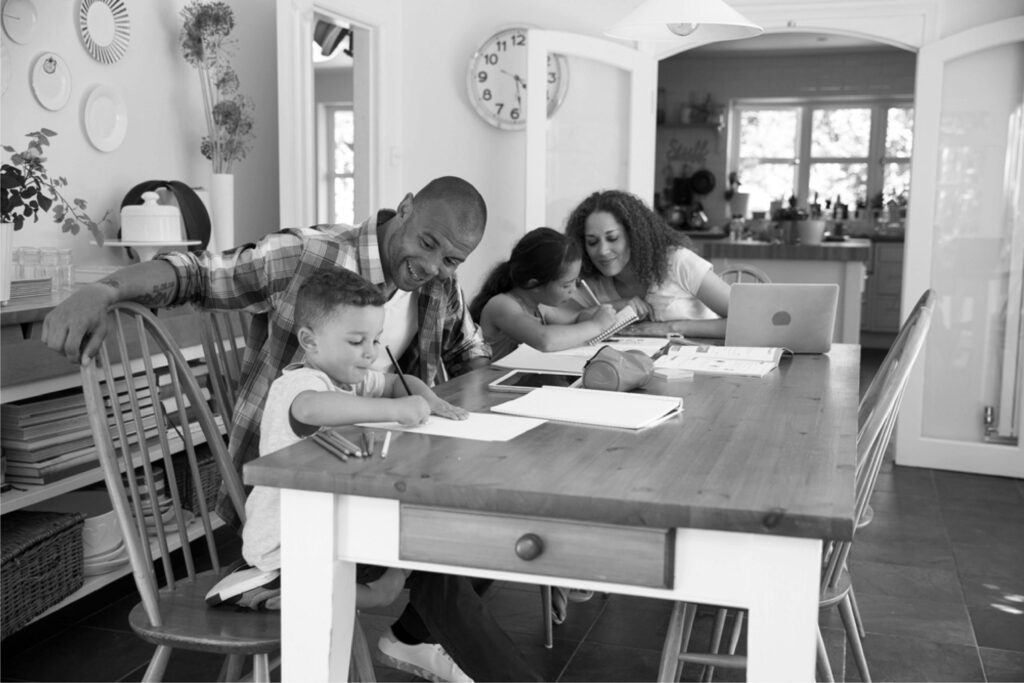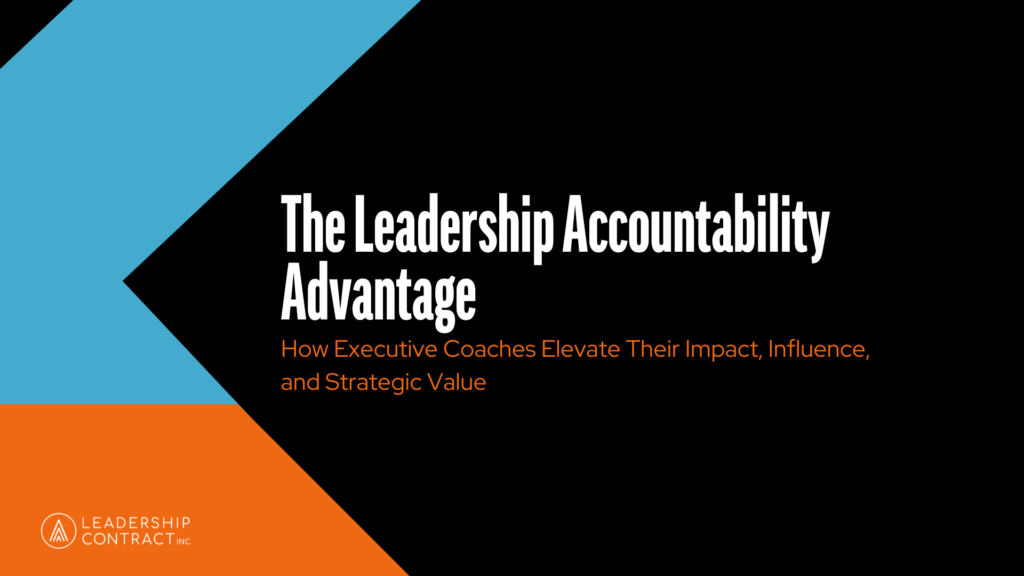My life is dominated by two important priorities.
The first is my family. My children and my spouse are my number one priority.
The second priority is my role as a leader and my work with senior executives.
Remarkably, the deeper I get into both primary priorities, the more I find they are connected. I’ve found what makes one successful as a leader also helps one be effective as a parent.
I’m certainly not alone in making this connection.
I recently worked with a group of senior executives in a financial services company based in London who were part of a high potential development program. The kick-off to the program took place about six weeks earlier, when everyone participated in the one-day program based on my book, The Leadership Contract, facilitated by my U.K. colleagues.
As the participants gathered together for a second session, I was asked to come in and deliver a keynote presentation to the group. Whenever I’m asked to speak to a group who has already been exposed to the ideas in my book or taken the program, I always like reaching out before the session to ask them if they have any specific questions.
This group of leaders asked me a lot of fascinating questions about what impact the book has had on my career, and which leaders are my personal role models. They also wanted to know if the principles in the book also apply to our non-work lives, parenting in particular.
This was not the first time program participants have made the connection between good parenting and good leadership. The participants in this group went a step further, positioning the four terms of The Leadership Contract as a kind of template for good parenting.
I began to think that it was about time I modified the four terms to speak directly to our roles and responsibilities as parents.
Parenting is a Decision – Make it.
Balancing a leadership role and a role as a parent is demanding. I don’t really know of a leader who doesn’t strain under the weight of both responsibilities.
I want to be really good at both, and I’ve learned over time that this doesn’t happen by accident. As is the case in leadership, you have to make the deliberate decision to be the best parent you can be. This means investing in your development as a parent and continually improving your ability to guide and support your kids as they grow from infants to toddlers, to teenagers and adults.
At each of these turning points in their lives, I’ve come to appreciate that I need to adapt. What worked when my kids were toddlers doesn’t translate to success when they became teenagers. I also learned that you need to be very deliberate as a parent, just as deliberate as you are as a leader. Not only does your parenting style need to evolve and change over time, but it also needs to vary for each of your kids, because they are unique individuals. What works for one will not work for another. To me this is an important realization of leadership, as well. While you think the people in your lives are there to adapt to your leadership style, in reality you are the one who has to adapt to the unique needs of those who you lead, if you want them to be successful.
Parenting is an Obligation – Step Up.
When you are a parent, you quickly come to realize the obligation that comes with the role. When your kids are very young, you worry constantly about their safety, health and happiness. As they get older, your obligations to them evolve. You are now more concerned with helping them become successful on their own so they can chart their own path in life. In the book, The Self-Driven Child: The Science and Sense of Giving Your Kids More Control Over Their Lives by Dr. William Strixrud and Ned Johnson, the authors argue that parents must instill a sense of “agency” in their kids, which they define as a feeling of being in control of their own destiny. To me this nicely captures the ultimate obligation we all have as parents. (By the way, there’s a great summary of the ideas of this book available on National Public Radio).
Parenting is Hard Work – Get Tough.
If you’ve been a parent for any length of time, you can appreciate how challenging it is. Just like leadership, if you are satisfied with being a mediocre parent, it can actually be quite easy. But to be really good at it, it takes a lot of hard work.
Stuff happens and, sometimes, not great stuff. You have to help your child manage it as best you can. This is never an easy task. I also know that you need to set the tone and be an example of how to deal with adversity, and how to model resilience and resolve. I have not perfected this skill, by any means. To me, parenting (just like leadership) is a process of constant learning. Like leadership, it requires a healthy dose of humility. It’s also about being able to let go and give your children the space to learn to deal with the hard stuff they will encounter throughout their own lives.
Parenting is a Community – Connect.
I find that whenever my wife and I get together with our friends, we spend a lot of time talking about our kids. We are keen to know how everyone is doing, where they are succeeding, and where they are struggling. Like leaders in an organization, building and participating in a parent community is critical. We all learn a lot about being a leader, or being a parent, that can be shared with others. Do you have friends or relatives you can reach out to and discuss a parenting challenge? How can these friends and relatives also be a positive influence in the lives of your children?
For many of us, being a parent and being a leader draws on many similar capabilities that we need to be successful. There is a deep connection between the two.
What are the parallels between leading and parenting?
Gut Check For Leaders








